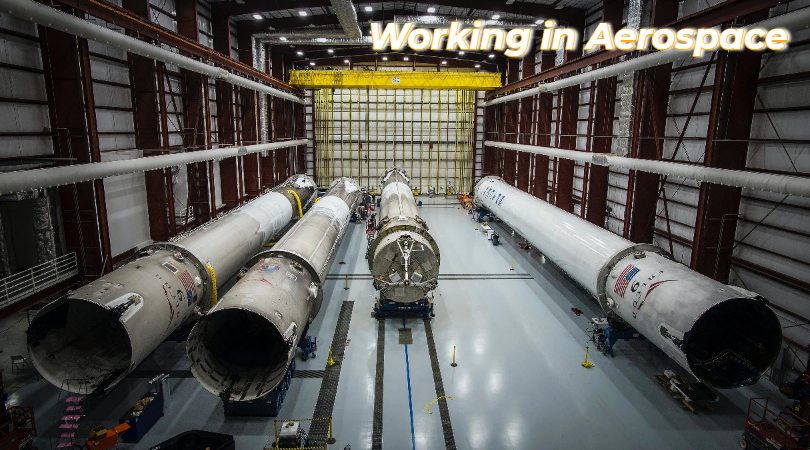
Working in the aerospace industry is an incredibly rewarding and intellectually challenging career path. It requires specialized skills that many professionals take years to develop, from advanced engineering knowledge to a multi-faceted understanding of operational efficiency. Successful aerospace professionals have an extensive set of core abilities that allow them to excel within the field. This article will discuss some of the essential skills needed for working in aerospace and provide tips on how aspiring professionals can build these abilities. By equipping yourself with the right tools and developing your skill set, you’ll be able to make a name for yourself in this fascinating profession.
Table of Contents
Start with the Basics:
Aerospace engineering requires a strong knowledge of mathematics and physics. Understanding how the various parts of a system interact with each other is also essential. Developing your expertise in these areas will allow you to work more effectively when building, operating, and maintaining any aerospace system. The technical and theoretical knowledge you gain will also be beneficial for solving complex problems.
One way to do this is to do some courses and elementary stem videos from Space Foundation to understand engineering concepts and physics. Additionally, it’s a good idea to read up on current trends in the industry and familiarize yourself with any relevant regulations or safety protocols.
Focus on Teamwork:
Aerospace engineering is a collaborative process and requires teamwork. Understanding how to work in groups or as part of a larger project is essential for success. Not only should you be able to communicate effectively with other team members, but you also can coordinate multiple tasks simultaneously. Developing good conflict resolution skills can help ensure that projects run smoothly and efficiently. Additionally, having the ability to listen actively and respect different perspectives will help build solidarity among your fellow aerospace engineers.
Whilst working in teams, aerospace engineers must be able to identify potential problems and find creative solutions. The ability to think quickly and apply analytical skills to come up with viable solutions can help streamline processes and improve operational efficiency.
Dive into Details:
One of the most critical aspects of aerospace engineering is having a sharp eye for detail. Aerospace engineers must be able to pay close attention to the smallest of details and identify any anomalies or errors. Meticulously combing through technical specifications, schematics, and data is also necessary to ensure accuracy and precision. Additionally, aerospace professionals should have excellent problem-solving skills to pinpoint problems quickly and accurately.
Whilst on the job, captains must have a comprehensive knowledge of aircraft systems and be able to explain them in depth. Apart from this, they should also stay up to date with any changes in regulations and safety protocols to ensure their passengers’ utmost safety.
Stay Up to Date with Technology:
Technology plays an integral role in the aerospace industry, so staying current with the latest advancements is critical for success. Understanding how different systems work together, as well as being able to troubleshoot potential issues, will help you rise above your peers. You should also become familiar with various software programs, such as MATLAB, AutoCAD, and SolidWorks to help you in your work. Additionally, staying abreast of current trends in the industry can be beneficial when it comes to obtaining new contracts.
Stay Organized:
Along with technical skills, staying organized is essential for success in the industry. This means keeping detailed records of all aspects of an operation, from designs to materials used and test results. Being able to locate data quickly and efficiently store information will help you make better decisions faster and reduce costly mistakes. Not only that, but it will also help you complete projects on time and within budget. The ability to forecast issues and manage resources accordingly will also come in handy.
Staying organized is also essential when it comes to communication. Aerospace professionals must communicate effectively with clients and other staff members to ensure projects are completed accurately and on schedule.
Problem-Solving:
Problem-solving is another key component of working in aerospace. Professionals need to be able to identify problems quickly and find creative solutions that maximize efficiency while minimizing costs. Additionally, they should be able to analyze complex data and make sound decisions based on their findings. Being able to draw logical conclusions from the facts and make timely decisions based on experience and expertise is critical for success. Your ability to develop practical solutions and make quick decisions can help your team meet deadlines and succeed.
Conclusion:
Working in the aerospace industry requires a combination of technical knowledge, problem-solving skills, and attention to detail. Aptitude in mathematics and engineering is also essential for success. Additionally, having the ability to stay up to date with technology and manage resources efficiently is invaluable. Lastly, problem-solving skills can help you develop creative solutions that will benefit your project and your team’s efficiency. With these skills under your belt, you’ll be ready to take on any challenge that comes your way.
These are only some of the critical skills required for success in aerospace engineering, and there are many more that you’ll need to learn and master to succeed. With dedication and hard work, you can become an expert in the field and make a difference in the world.
Visit for More Best Articles